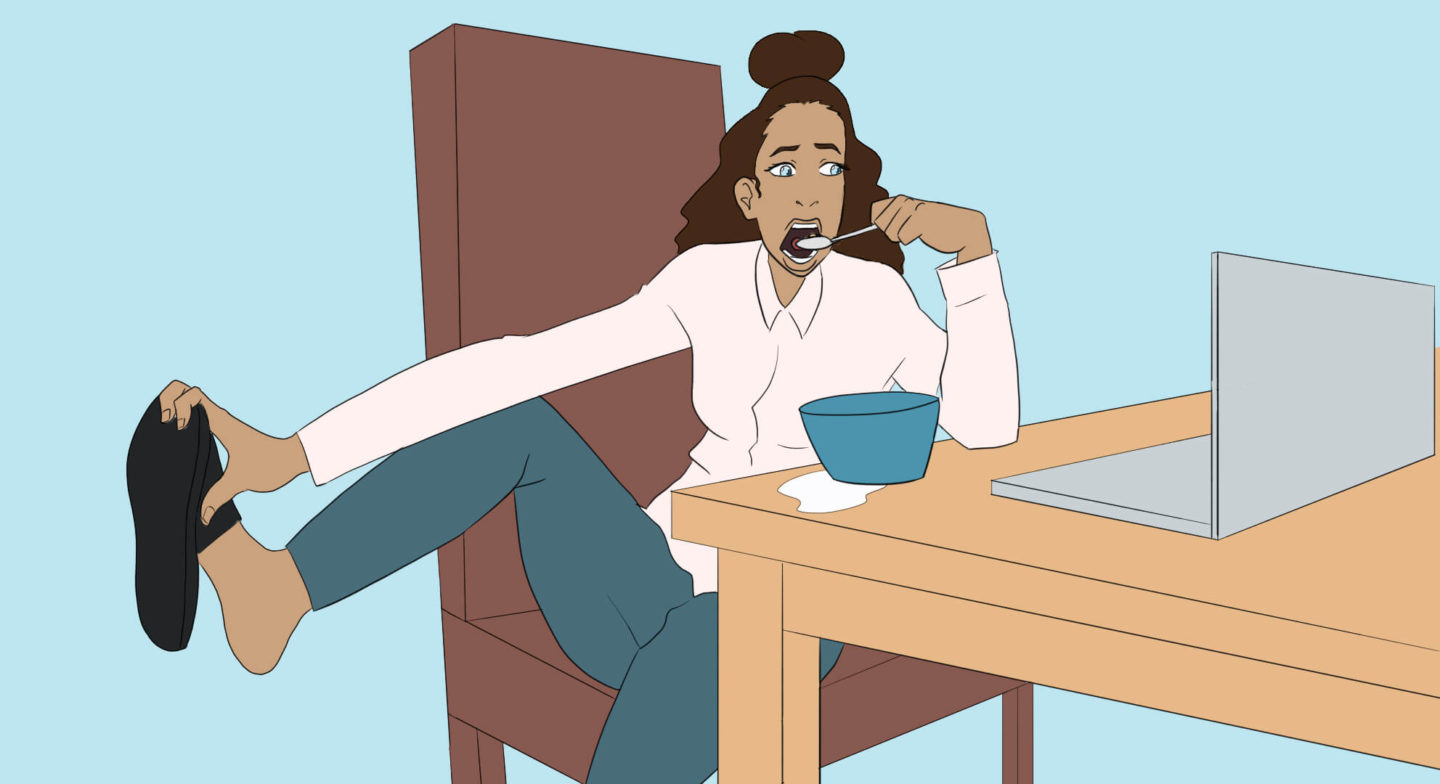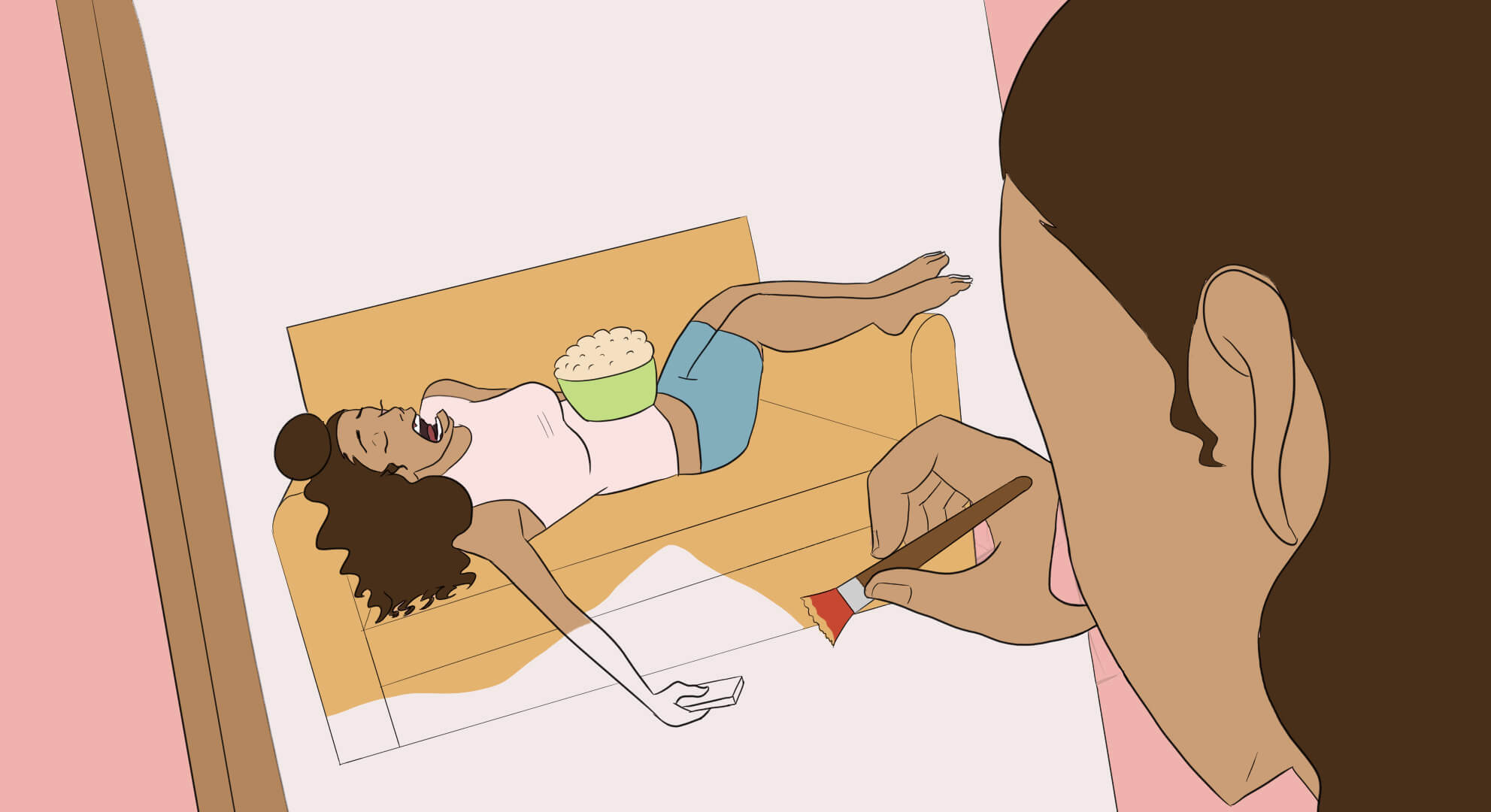We live in a world that values productivity over everything. We prepare our meeting notes on our morning commutes. We eat our breakfasts at our desks whilst responding to a swarm of emails. And when the end of the day rolls around and we can finally put our feet up, we can’t seem to shake that niggling feeling of guilt. That little voice telling us that we should be doing something else – something more productive. As a society, we associate speed with success. We praise the employees who take on countless tasks at once and reward those who work overtime to complete projects sooner. Meanwhile, laziness has taken a backseat. But why are we so obsessed with productivity? And when, in the midst of this fast-paced lifestyle, did we forget the art of laziness?
Your worth is not measured by your productivity
Have you ever heard of a little thing called ‘FOMO’? FOMO, or the fear of missing out, is the nagging voice inside your head telling you that more is better. Whether it’s a new gadget, a new outfit or a new experience, we are taught that accumulation is the key to happiness. And it is the same consumerist mentality that has infiltrated our working lives. We are taught that the more we do with our time, the greater our worth.
But this idea is problematic. If we associate productivity with success, it’s only natural that we’ll attach guilt to laziness.
Is our obsession with productivity actually counter-productive?
The truth is, in trying to accomplish everything, we are missing out on life. Moments pass us by and we’re too engrossed – in our emails, in our smartphones, in our minds – to notice.
With all of this internal chatter, this incessant need to be doing something 24/7, we can’t help but ask: when is breaking point? Completing a long to-do list and falling into bed exhausted at the end of the day might give us a temporary feeling of satisfaction. But there’s only so much we can take. Our bodies are exhausted and our minds overworked. And, as it turns out, our fast-paced, on-the-go lifestyles may not actually give the most productive results. So what do we do? We turn to the art of laziness.
How can we benefit from the art of laziness?
When is the last time you really did nothing? And I mean really nothing. That doesn’t mean sticking the TV on in the background whilst you reply to a string of work emails. Or half-listening to a podcast whilst you do the online shop. It means letting go of your internal to-do list and doing something for you purely for the fun of it.
I’m a strong advocate of laziness. I bask in me-time and believe in the importance of rest. Whether I’m getting lost in a book, meeting a friend for coffee or taking myself for a stroll in the park, I try to do something each day that allows me to switch off. And the best part? I often find that this ‘lazy-time’ produces better results in the work that I do.
And it’s not just me – in fact, studies suggest that allowing time for rest may actually make us more productive in the long-run. The fewer things we focus on, the higher our clarity of thought and the better our concentration. And it turns out that laziness may even make us more creative. Bravo to that!
Finding the balance

If all this talk of laziness is making you want to crawl under your duvet and never return, trust me – I feel you! But as appealing as this sounds, it’s important to find the balance between work and play. So, here are some tips for practising the art of laziness in a busy world:
Dedicate a portion of time each day to being lazy
No matter how busy your schedule, you should always make time for rest. Whether this means meeting a friend on your lunch break, binging on your favourite Netflix series or practising a morning meditation, daily ‘you-time’ is crucial. It may take a little while before you’re able to truly switch off, but this will become easier over time. And what’s more, you will often find that you return to work feeling extra refreshed and motivated!
Keep your phone out of reach during rest time
When you sit down to watch a film, it can be second-nature to pick up your phone and start scrolling. And before you know it, you’re responding to your fifth email and have to rewind the film for the third time. If this scenario is all too familiar, it may be a good idea to keep your phone in a different room when you’re enjoying some time to yourself. This will avoid distractions and allow you to really get the most out of your rest time.
Eat mindfully
Amongst our busy schedules, it can be a little too tempting to grab food on-the-go. However, mealtimes are great opportunities to remind our minds to slow down. Try to avoid eating your breakfast at your desk or picking up a sandwich on your commute. Instead, when you sit down to eat, focus purely on the food and savour the way it tastes. This can be a great grounding technique and can also promote weight loss.
Never feel guilty for resting
And lastly, never feel guilty for being lazy. Remind yourself that it’s crucial to your mental health, your well-being and, believe it or not, your productivity!
Find more self-improvement articles here >
Written by Hannah Hussein
Illustrated by Josh Agamlong

